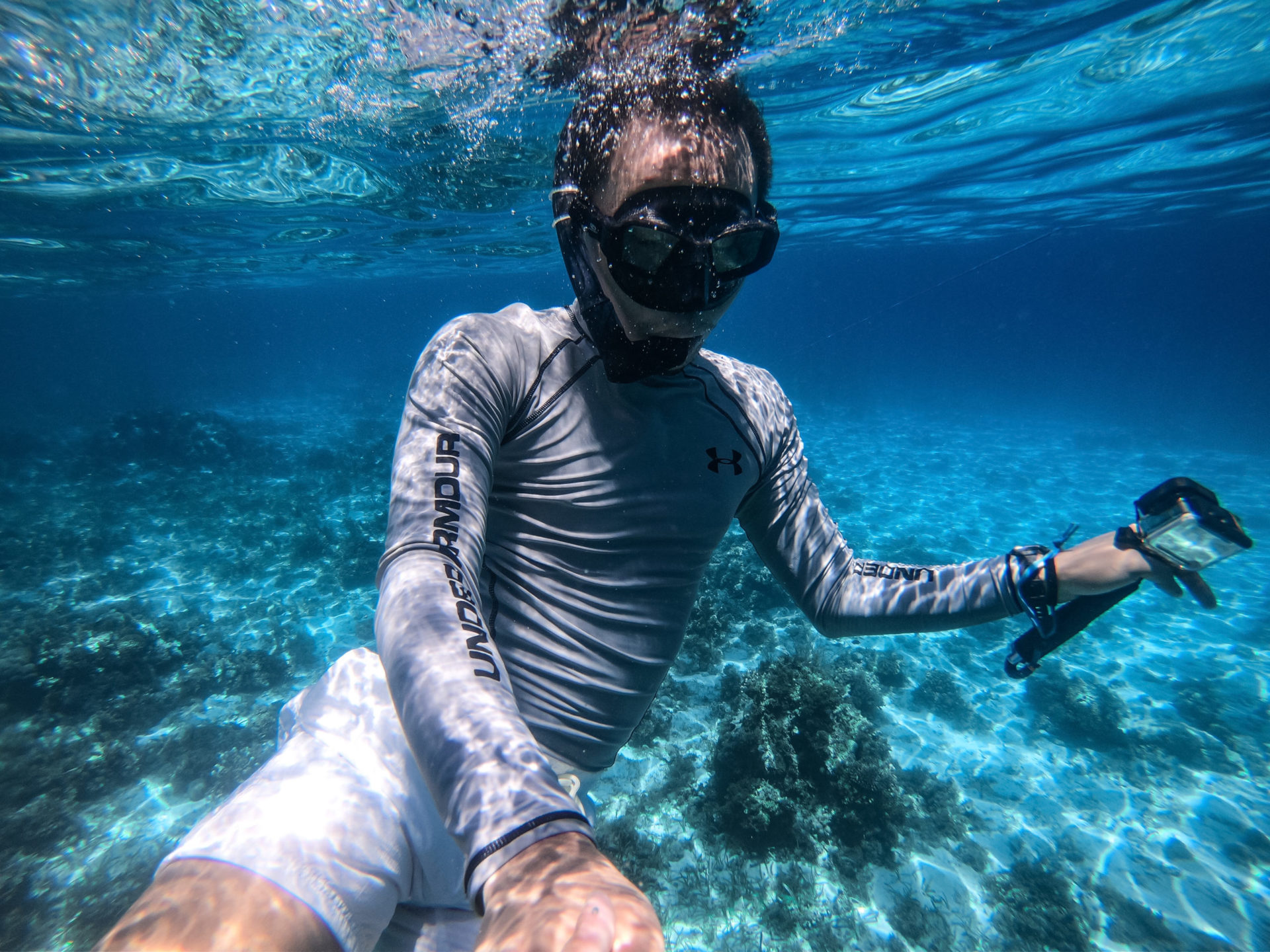A researcher from the University of South Florida is searching for ways to revive marine environments and test medical technology that could prevent a myriad of diseases in people. But there’s one catch: he’s doing it all 30 feet underwater — and he’s trying to do it for 100 days.
Joseph Dituri is an associate professor at USF. He’s also a retired U.S. Navy Commander and holds a doctorate in biomedical engineering. He said while he’s been preparing himself for the psychological challenge over the past year, he’s had a lifetime of physical preparation.
“I was a Navy saturation diver,” Dituri said. “I was a one atmosphere student pilot, I was in charge of deep submergence unit.”
“When you look back at your whole life, you go, ‘Oh, that’s why that had to happen to me,'” he added. “So that I can be prepared for this particular eventuality.”
On Wednesday, he swam into his new 100-square-foot habitat approximately two-thousandths of a league under the sea at Jules’ Undersea Lodge in Key Largo.
Dituri will live in isolation for the duration of the mission called “Neptune 100.” Part of the work will see a psychologist and a psychiatrist monitor the effects he experiences while in an environment similar to extended space travel.
“It’s an isolating confined extreme environment. And as humans, we really need to figure out how we’re going to be living in that (environment) if we’re going to expand our planet, if we’re going to go interplanetary if we’re going to find all the cures that we need to find.”
If Dituri completes his mission, he’ll hold the world record for the longest time living underwater in ambient pressure — 1.6 times the pressure felt on land. But he said that’s not the important part.
“Everything we need is on this planet,” Dituri said. “Everything we need is here, we have the yin, we have the yang. We have the disease, we have the cure. We just need to look where we’ve never looked before.”
A 10-person medical team helped him prepare for the subsea mission. Dituri went through a number of psychological tests in preparation but said a big concern was his oral health.
“The teeth, which are the worst part, because (if) you get some kind of infection to your teeth, your mission is over.”
Neptune 100 is scheduled to conclude on June 9. Until then, Dituri said he’ll work on outreach with other scientists, as well as children, and conduct marine and medical research. He’ll also be teaching a hyperbaric engineering class — live from the pod — this May.
“It’s 13 feet long. It’s eight feet in diameter,” he said. “So total volume is pretty good. But remember a lot of this is not useful because the floor can’t be at the very bottom because it’s an actual circle.”
Dituri said he has a small toilet area and freshwater shower, and joked he also has a coffee pot “because it’s absolutely necessary to live.”
To stay in peak condition while underwater, Dituri said he’ll do 100 push-ups and sit-ups each day. And due to the lack of sunlight, he’s taking 10,000 IU’s of Vitamin D daily. He can leave the pod to swim but must stay fully submerged for the duration of the project.
The whole effort took about $250,000 to pull off.
According to wusfnews.wusf.usf.edu. Source of photos: internet








